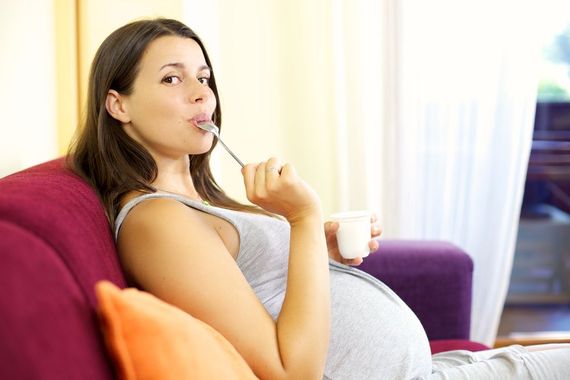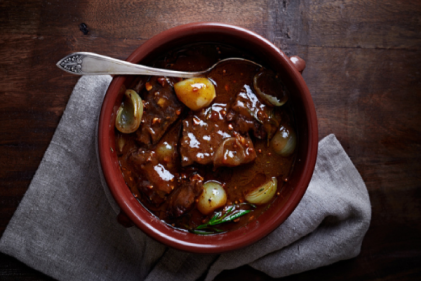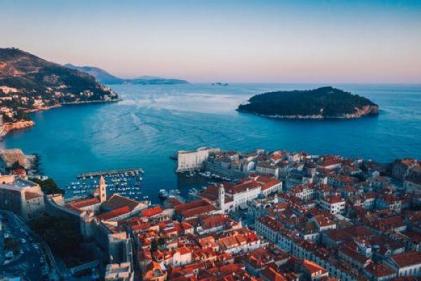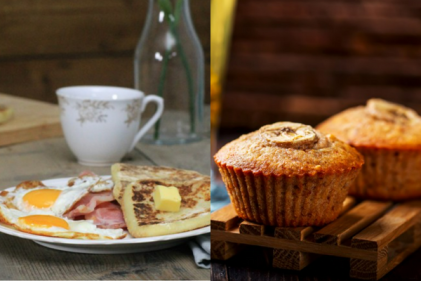 The list of things you should and shouldn't eat can be overwhelming, especially if this is your first pregnancy.
The list of things you should and shouldn't eat can be overwhelming, especially if this is your first pregnancy.
Here are some of the most common food myths and the truth behind them.
The Myth: A low-fat pregnancy diet is best
Busted: While foods high in saturated fats should be minimised, ‘good’ fats are very beneficial to you and your baby. Omega 3 fatty acids are needed to build your baby’s brain and good fats are necessary for your body to get important fat-soluble vitamins such as vitamin D, which helps the absorption of calcium.
Busted: While foods high in saturated fats should be minimised, ‘good’ fats are very beneficial to you and your baby. Omega 3 fatty acids are needed to build your baby’s brain and good fats are necessary for your body to get important fat-soluble vitamins such as vitamin D, which helps the absorption of calcium.
The Myth: You should take iron supplements
Busted: Pregnant women are at risk of developing anaemia as the amount of blood in their bodies increases and the foetus can also drain iron resources. Eating iron-rich food such as red meat or fortified cereals, while making sure you get an adequate amount of vitamin C to aid absorption, should provide you with the necessary amount. Your prenatal vitamin also contains iron, so an extra supplement is unnecessary unless your GP recommends it.
Busted: Pregnant women are at risk of developing anaemia as the amount of blood in their bodies increases and the foetus can also drain iron resources. Eating iron-rich food such as red meat or fortified cereals, while making sure you get an adequate amount of vitamin C to aid absorption, should provide you with the necessary amount. Your prenatal vitamin also contains iron, so an extra supplement is unnecessary unless your GP recommends it.
The Myth: You shouldn’t eat fish
Busted: Research has found there are benefits to consuming fish during pregnancy. As well as being a source of protein, it also contains the healthy fatty acid, Omega 3 which helps your baby's brain development. One portion of oily fish like salmon or fresh tuna a week has most of the omega 3 your baby needs, along with vitamins A and D and iodine.
Busted: Research has found there are benefits to consuming fish during pregnancy. As well as being a source of protein, it also contains the healthy fatty acid, Omega 3 which helps your baby's brain development. One portion of oily fish like salmon or fresh tuna a week has most of the omega 3 your baby needs, along with vitamins A and D and iodine.
The Myth: You shouldn’t eat cheese
Busted: Hard, pasteurised cheese such as cheddar or Edam are safe for a pregnant mum to eat. Blue veined and mould-ripened cheese should be avoided as they are a thriving ground for bacteria such as listeria to grow.
Busted: Hard, pasteurised cheese such as cheddar or Edam are safe for a pregnant mum to eat. Blue veined and mould-ripened cheese should be avoided as they are a thriving ground for bacteria such as listeria to grow.
The Myth: You’re eating for two
Busted: While a pregnant woman needs more energy, they don’t need to eat double the amount – just think about how small your baby is. You should consume around 300 extra calories a day and ensure you have a varied, nutrient-rich diet.
Busted: While a pregnant woman needs more energy, they don’t need to eat double the amount – just think about how small your baby is. You should consume around 300 extra calories a day and ensure you have a varied, nutrient-rich diet.






